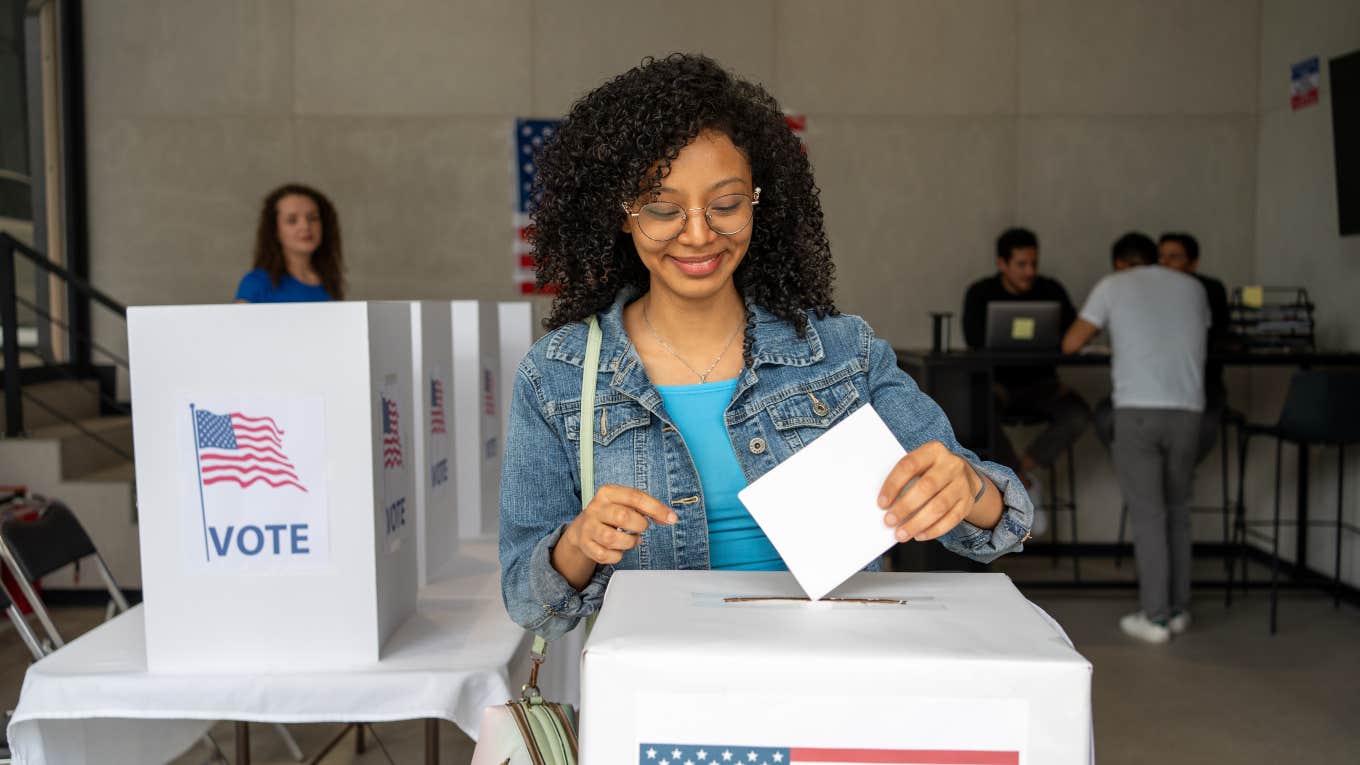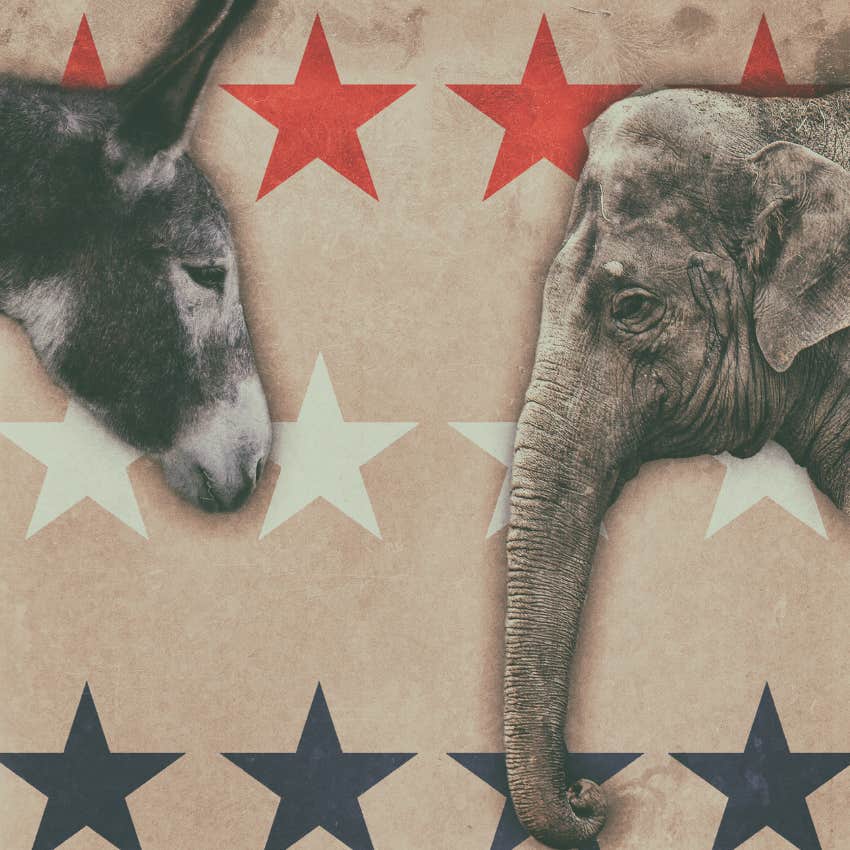There’s An Actual Difference In Brain Structure Between Conservatives And Liberals, According To Research
The fact that there is a difference in conservatives' and liberals' brains isn't surprising, but what do we do with that information?
 Alan Mazzocco | Shutterstock
Alan Mazzocco | Shutterstock Have you ever talked to someone with different political beliefs and thought their brain must be different than yours? Well, it turns out, you might be right.
A new study performed on Dutch citizens found that there actually are differences in the makeup of the brains of more conservative and more liberal voters.
A study found differences in conservatives’ and liberals’ brains.
A new study published in iScience addressed whether or not there really are differences between the brains of conservatives and liberals. The study was a replication of a 2011 study performed on 90 university students in the U.K.
 Atomazul | Shutterstock
Atomazul | Shutterstock
While researchers were unsure if they would, the two studies did share some of the same findings.
The new study, called “Is Political Ideology Correlated With Brain Structure? A Preregistered Replication,” involved 928 people from the Netherlands between the ages of 19 and 26. To examine the participants’ brains, “pre-existing MRI brain scans” were used. Participants were also given a questionnaire about political views to fill out so researchers could compare it to the scans.
The findings primarily concerned the amygdala. According to the Cleveland Clinic, the amygdala is a part of the brain that is “a major processing center for emotions.” The amygdala is most commonly associated with feelings of fear and danger.
Researchers found that conservative participants in the study had an amygdala that was larger than liberals by roughly the size of a sesame seed.
Researcher and primary author of the study Diamantis Petropoulos Petalas, said, “The amygdala controls for the perception and the understanding of threats and risk uncertainty, so it makes a lot of sense that individuals who are more sensitive towards these issues have higher needs for security, which is something that typically aligns with more conservative ideas in politics.”
 AYO Production | Shutterstock
AYO Production | Shutterstock
Petropoulos did point out one important thing to take into consideration when thinking about the study. Unlike the U.S., and the U.K., where the study was first performed, the Netherlands has a multi-party political system. Therefore, these were not all or nothing answers. Participants’ political views existed on a “spectrum,” essentially.
“That speaks to the idea that we’re not talking about a dichotomous representation of ideology in the brain, such as Republicans versus Democrats as in the U.S., but we see a more fine-grained spectrum of how political ideology can be reflected in the brain’s anatomy,” Petropoulos said.
The findings of this study should be interpreted with caution.
It would be fairly easy to read about this study and conclude that there is a difference in liberals’ and conservatives’ brains and, therefore, an inherent difference between conservatives and liberals, period. While it would be a falsehood to claim that those on either side of the aisle don’t have things that set them apart, this shouldn’t lead to further division.
Right now, possibly more than ever, the political divide in the U.S. is stark. Pew Research Center said, “America’s relatively rigid, two-party electoral system stands apart by collapsing a wide range of legitimate social and political debates into a singular battle line that can make our differences appear even larger than they may actually be.”
Because of the harsh divide along political lines in the U.S., weaponizing these results would be simple. But a sesame seed-sized change in one’s amygdala does not change who that person is.
The American Psychological Association said, “If existential fear is indeed a root of polarization, our sometimes-warped view of the other side can perpetuate it.”
We must start seeing each other as fellow human beings on this journey through life. We are not enemies or opponents. We’re all just people trying to get by.
Holding different beliefs does not change that fact. We can still get along if we choose to.
Mary-Faith Martinez is a writer for YourTango who covers entertainment, news, and human interest topics.

